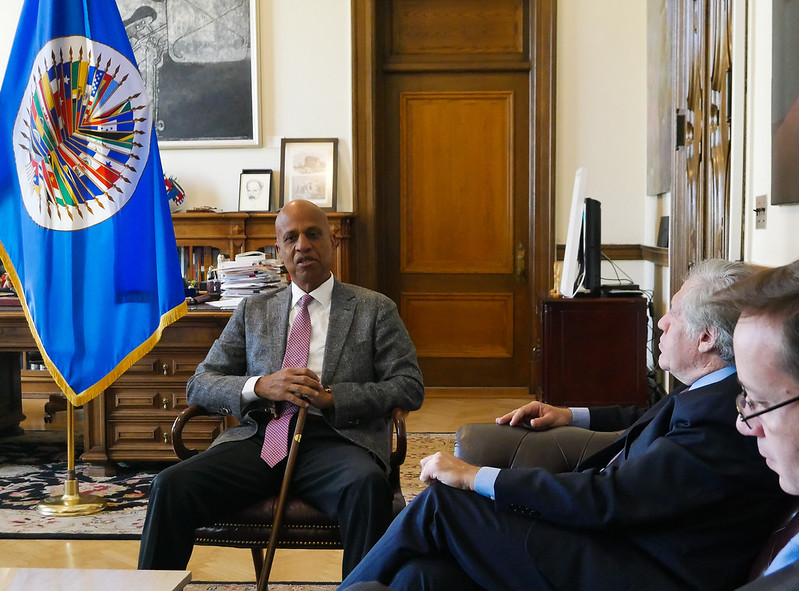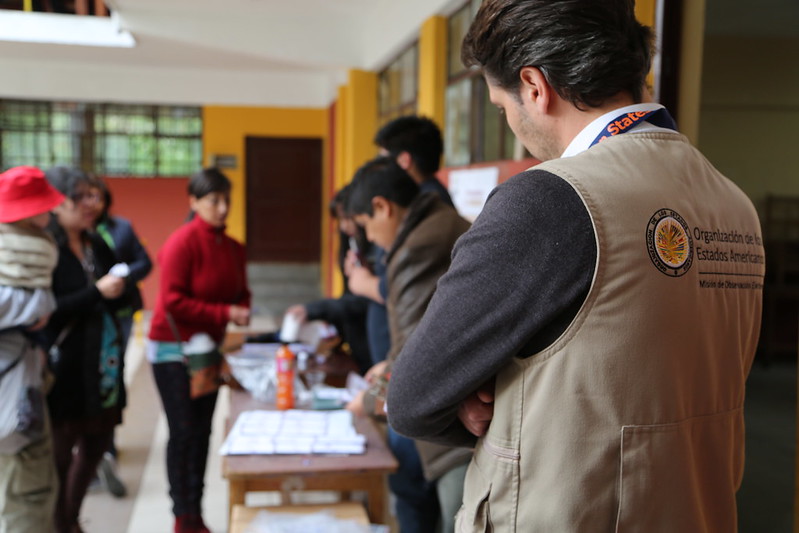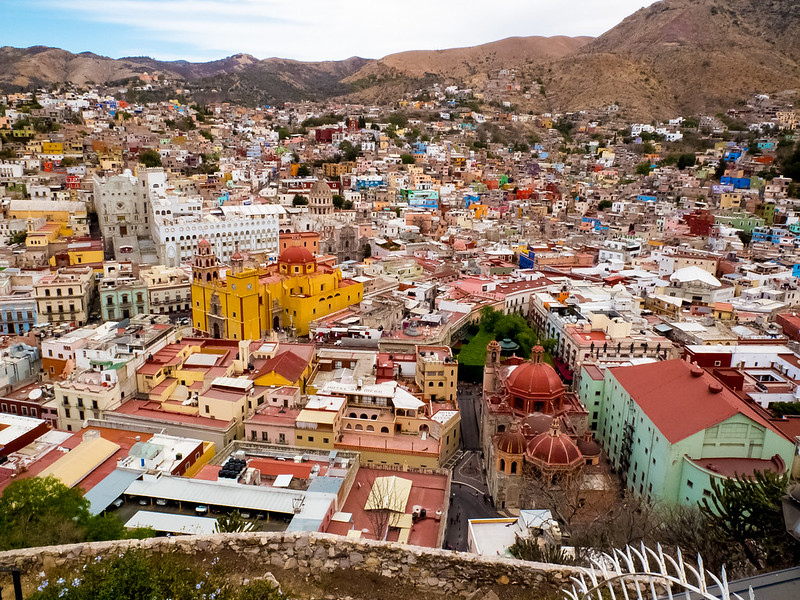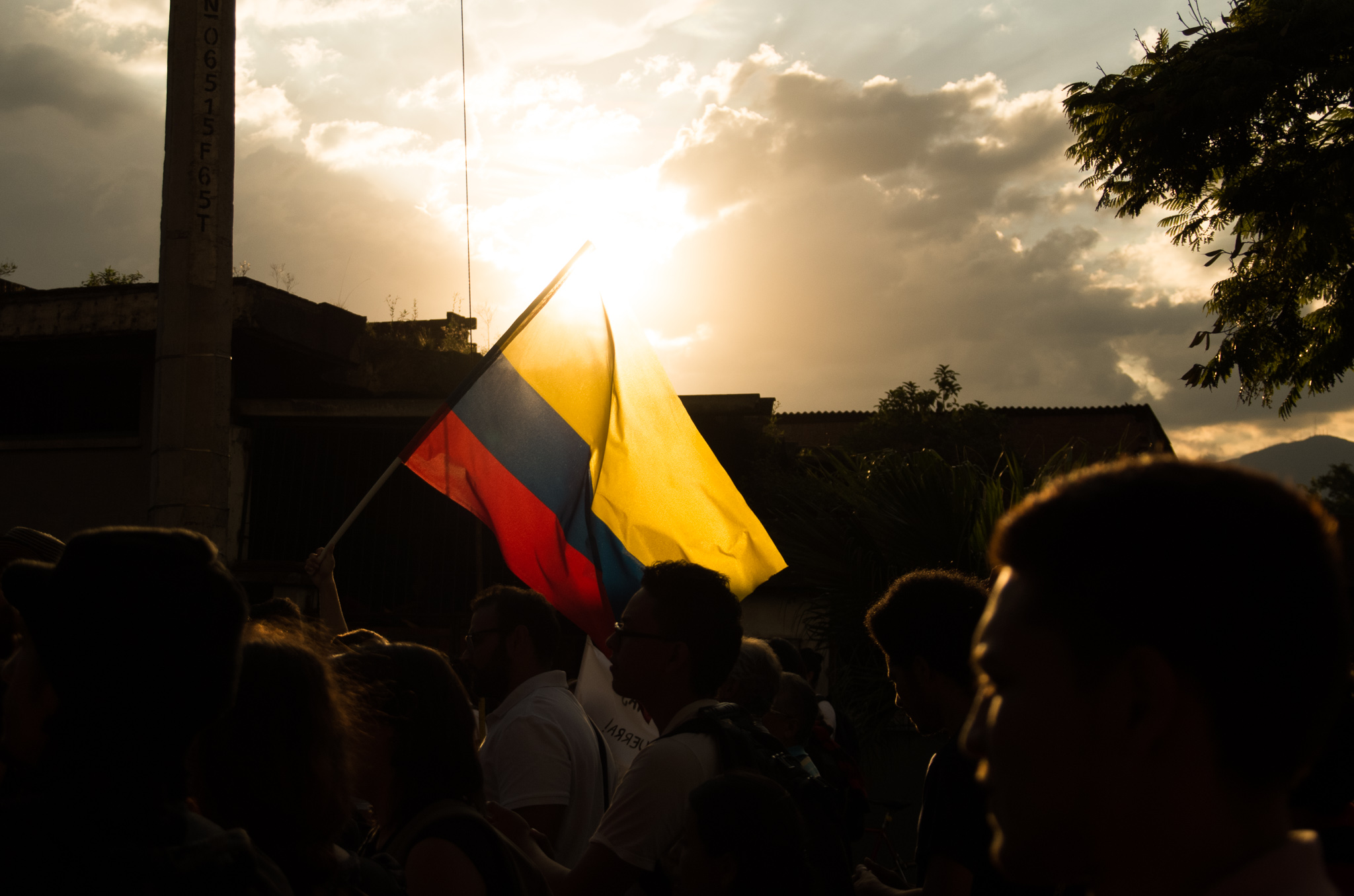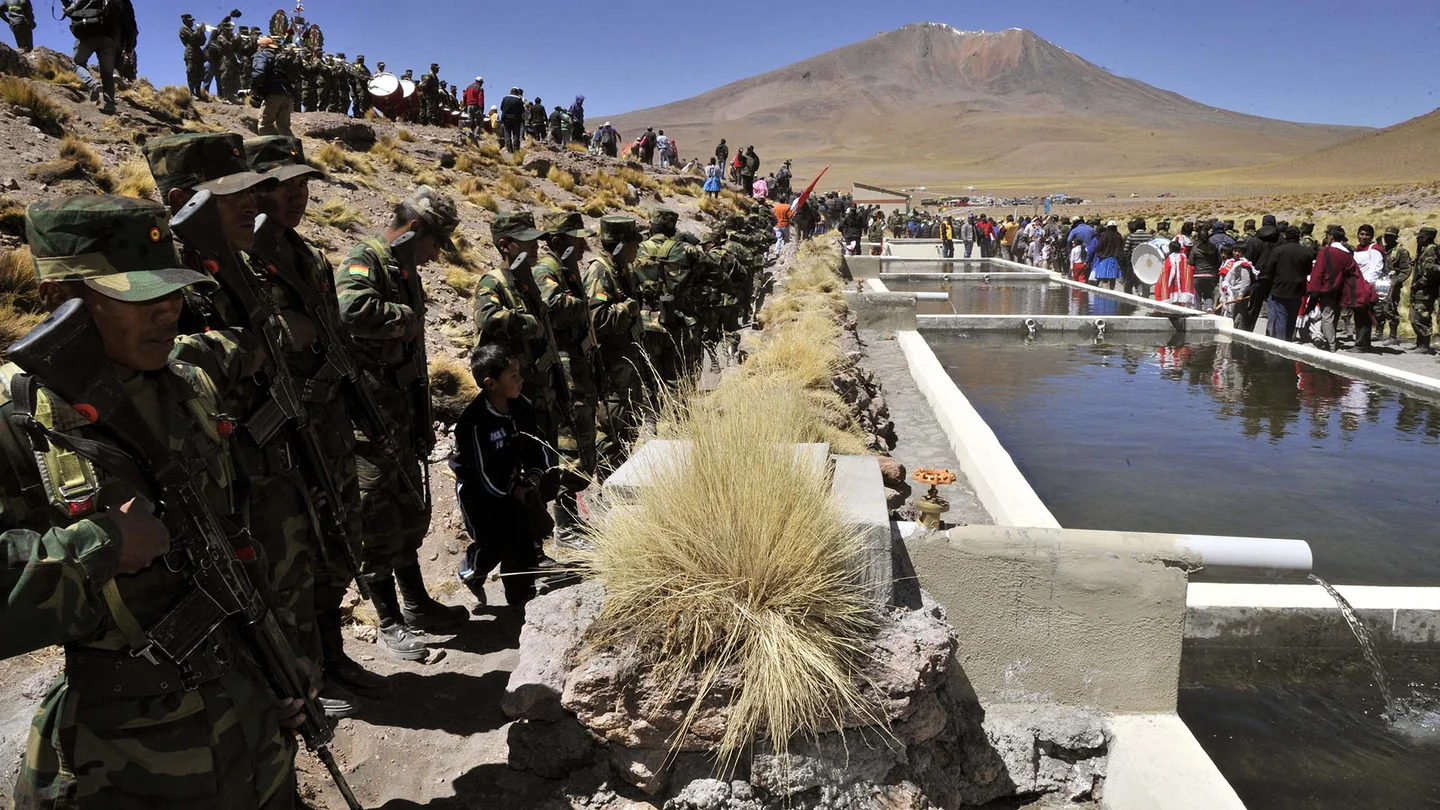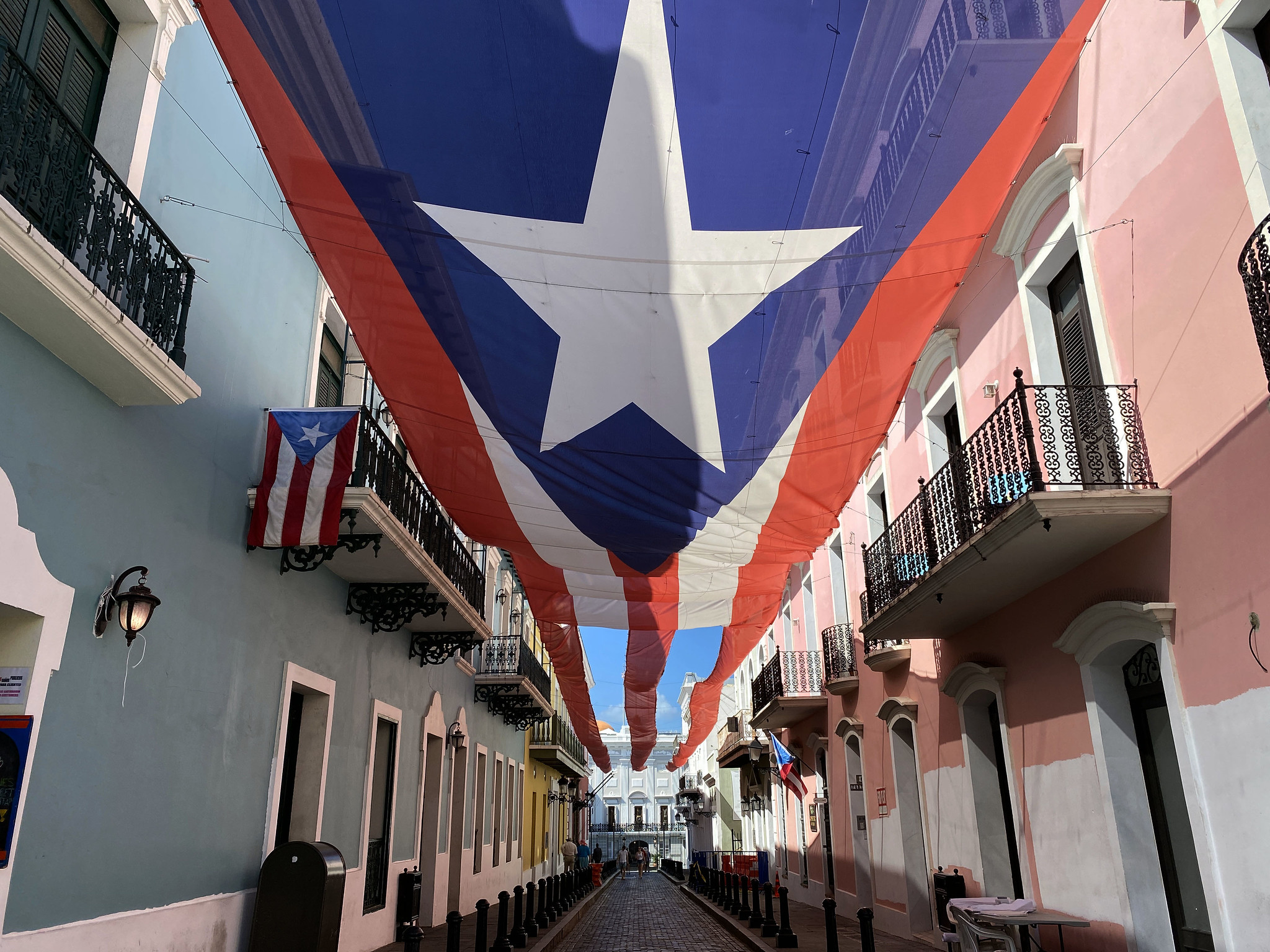
Latin America: Week in Review
Uncounted Ballots Found in Puerto Rico Week After Elections
November 12, 2020 By Staff
TODAY IN LATIN AMERICA
PUERTO RICO: Puerto Rico’s elections commission discovered almost 200 briefcases containing uncounted ballots from a secured vault on Tuesday. Francisco Rosado, the State Commission on Elections’ new president, blamed the discovery on an underfunded and understaffed administrative board, admitting they were “poorly organized.” How many votes are stored in at least 125 briefcases remains unknown, as some contain three while others 500 ballots. The votes are expected to be counted by Thursday and are assumed to mainly be early and absentee ballots. The discovery could change the results of several narrow races, such the mayoral race of the island-municipality of Culebra, which has a margin of just two votes.
This is the latest hiccup in the United States territory’s elections commission. In August, primaries were suspended and re-held, after a “lack of ballots,” which led to the resignation of now ex-elections committee president Juan Ernesto Dávila. The commission then took four days to finalize counting votes after the Nov. 3 general election. Critics blame the disorganization on a new law that Gov. Wanda Vázquez approved in June, which softened restrictions for absentee ballots and early voting and eliminated departments and positions within the elections commission. This year, Puerto Rico received a record number of more than 220,000 absentee and early votes.
Headlines from the western Hemisphere
SOUTHERN CONE
BRAZIL: China’s Sinovac coronavirus vaccine trials can restart Wednesday, following suspension earlier this week, according to Brazilian health authority Anvisa. On Monday, Anvisa cited a “serious adverse incident,” which was reported to be the death of a volunteer, but the head of the institute later assured that the death had no connection to the vaccine. Anvisa said in a statement on Wednesday it had “sufficient information to allow vaccination to resume.” President Jair Bolsonaro, who has been open about his preference for a vaccine developed by AstraZeneca, declared the suspension a “victory” against China. He has not commented on Anvisa’s latest announcement.
BRAZIL: Nearly 40 enslaved people were rescued from a Brazilian gold mine run by a known offender, labor authorities said. Inspector Magno Riga reported that a team raided Raimunda Oliveira Nunes’ mining operation this month — marking the third raid run by Nunes, who has been on Brazil’s “dirty list” of people engaged in slave labor since April. She was found guilty of enslaving workers back in 2018 and received a sentence of five years in prison. She has not been jailed and is appealing the ruling. This time, Nunes disguised her crimes with the help of two relatives in the northern state of Para. Although Nunes was not at the site at the time of the latest raid, several workers identified her as their boss, said Riga. The labor inspector’s office has been unable to find her.
BRAZIL: As Brazil’s coronavirus death toll continues to increase, President Jair Bolsonaro said in a press conference Tuesday that Brazilians must stop being “a country of sissies” since “everyone is going to die.” In addition to minimizing the number of deaths from the pandemic, the president used the Portuguese word “maricas,” a homophobic insult. Bolsonaro, who had coronavirus in July, said he mourns the dead but defends a hasty economic reopening. During the pandemic, Bolsonaro has repeatedly attacked governors and mayors who implemented social isolation measures in their territories, arguing that more people would die if the economy stopped. Brazil has over 5.7 million confirmed cases, registering as the second country with the most coronavirus-related deaths in the world. During a ceremony at the Planalto Palace in Brasilia, Bolsonaro also criticized United States President-elect Joe Biden, referring to him as a “candidate” and attacking him for his stand on Amazon deforestation.
ANDES
PERU: Following former President Martín Vizcarra’s impeachment Monday night, the streets of the capital city of Lima have witnessed a wave of protests, with demonstrators taking a stand against the resolution of the Peruvian Congress. On Tuesday, Manuel Merino took office as the country’s new president, reminding many of the third inauguration of Alberto Fujimori in 2000. As happened then, police used violence against protestors, including blows with clubs and shields, tear gas and pellets. Although the area where the Government Palace and Congress are located witnessed the grand majority of the opposition, smaller provinces also saw riots.
CENTRAL AMERICA
NICARAGUA: Nicaragua’s parliament voted Tuesday to allow life sentences for hate crimes in a 70-16 decision. The reform, which amends Article 37 in the country’s constitution, grants life imprisonment for those who commit “serious crimes when they occur in hateful, cruel, degrading, humiliating and inhuman circumstances.” Vice President Rosario Murillo, wife of President Daniel Ortega, claimed the action is a response to the nation’s recent series of rapes and femicides. But human rights organizations say this could be used to target political opponents and free speech. The legislature had already passed laws in recent weeks to regulate media publications. The amendment still needs to be approved in a second legislative period, with the next starting on Jan. 10.
GUATEMALA: Rescue operations have ended at the site of a huge landslide in the village of Queja, according to the country’s National Coordinator for Disaster Reduction (CONRED). The massive landslide is believed to have killed dozens of people in the farming town of about 1,200 Poqomchí Mayas. Although eight rescued bodies were confirmed dead in Queja, at least 88 people are still missing in the village. CONRED said the rescue came to a halt due to risks with international protocols and because the area was unstable. The landslide is a result of Tropical Storm Eta’s massive downpours and flooding, causing parts of a mountain to fall and bury people in their homes. As of Wednesday, Guatemala reported 45 deaths and 96 people disappeared due to Eta.
BELIZE: Belize voted on Wednesday for a new prime minister to replace Dean Barrow amid rising COVID-19 cases and floods from Storm Eta. Barrow, who is resigning after a dozen years as prime minister under the conservative United Democratic Party (UDP), exchanged power to candidate Patrick Faber in February. He ran against former Deputy Prime Minister Johnny Briceño, of the more left-leaning People’s United Party (PUP). The country’s economy has shrunk on an annual basis in every quarter from last year in April-June, through the second quarter of 2020. Results are expected to be announced early Thursday.
NORTH AMERICA
MEXICO: Cancún’s Chief of Police was stripped of his title after officers opened fire on a feminist protest. The police began shooting when the activists tried to force their way into Cancún’s city hall. Four journalists were injured, including two who suffered bullet wounds, and eight protesters were detained. Activists were protesting the high number of femicides in the country after two women were found dead and dismembered in the country in less than 24 hours, one of them being 20-year-old Bianca “Alexis” Lorenzana. Approximately 10 women are murdered in Mexico each day, according to The Guardian. Carlos Joaquín, the local police chief, assured the media that he did not advocate any violence against protesters and will be looking into the people who contradicted orders.
MEXICO: United States President-elect Joe Biden asked to speak with President Andrés Manuel López Obrador, to which he responded “not yet.” Mexico’s ambassador Martha Bárcena explained to the media that, until the country doesn’t call Biden’s victory, Mexico won’t offer its congratulations. El Universal reported that Biden’s team communicated with Mexico’s embassy to schedule a call with President López Obrador, and that Biden has spoken to Canadian Prime Minister Justin Trudeau, French President Emmanuel Macron and British Prime Minister Boris Johnson.
MEXICO: Mexico’s government agreed to hold conversations with the United States concerning former Mexican Secretary of National Defense Salvador Cienfuegos’ arrest. Mexico’s president notified the media that Foreign Minister Marcelo Ebrard is currently in talks with U.S. Attorney General William Barr, and that a diplomatic memo was sent concerning the bilateral tension arising from the arrest of Cienfuegos. Retired army general Cienfuegos is accused of helping a small drug gang, being an ally of the Sinaloa Cartel, manufacturing and shipping drugs to the United States. Mexico was not notified of Cienfuegos’ arrest ahead of time.
< Previous Article
